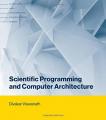
Advances in Human Computer Interaction
by Shane Pinder
Publisher: InTech 2008
ISBN-13: 9789537619152
Number of pages: 600
Description:
In these 34 chapters, we survey the broad disciplines that loosely inhabit the study and practice of human-computer interaction. Our authors are passionate advocates of innovative applications, novel approaches, and modern advances in this exciting and developing field. It is our wish that the reader consider not only what our authors have written and the experimentation they have described, but also the examples they have set.
Download or read it online for free here:
Download link
(35MB, ZIP/PDF)
Similar books
 Introduction to Software Engineering
Introduction to Software Engineering- Wikibooks
The problems to solve in software engineering are so complex or large, that a single developer cannot solve them anymore. This book is an introduction to the art of software engineering. It is intended as a textbook for an undergraduate level course.
(11302 views)
 Practical Tips for Software-Intensive Student Projects
Practical Tips for Software-Intensive Student Projectsby Damith C. Rajapakse
A collection of practical tips gathered from the authors' software engineering experience and from many books on the topic. It does not intend to cover software engineering theory. The book is meant for software engineering project courses.
(18903 views)
 Software Architecture
Software Architectureby A. Bijlsma, B.J. Heeren, E.E. Roubtsova, S. Stuurman - FTA
The central theme of this book is balancing the concerns and requirements of stakeholders, combining these into an architecture proposal by employing known tactics and patterns, producing a description of the architecture that can be communicated.
(14160 views)
 Scientific Programming and Computer Architecture
Scientific Programming and Computer Architectureby Divakar Viswanath - The MIT Press
This book examines and explains a variety of scientific programming models with an emphasis on how programming constructs map to different parts of the computer's architecture. Two themes emerge: program speed and program modularity.
(6405 views)